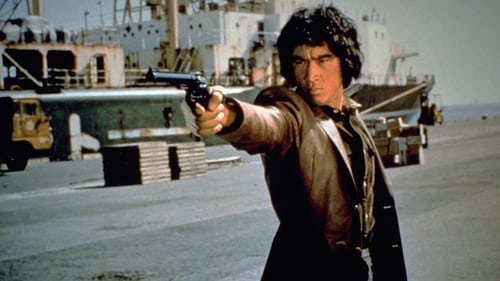
Tokyo High Court judge
TV film about the "Nishiyama Incident", a scandal surrounding the 1972 return of Okinawa to Japan. Produced to commemorate the 20th anniversary of TV Asahi in 1978 and released theatrically by Office Henmi in 1988.

The first movie of Tôru Murakawa’s “Game” trilogy, in which an assassin hired to recover a kidnap victim becomes embroiled in a vicious power struggle between two large corporations over a sizable government defence contract.

1947 Toho film directed by Tadashi Imai

Police Officer Asano
조만 국경인 만포진에는 국경 경비대가 주둔하고 있는데 해마다 겨울이 되면 마적들이 경비대를 습격하곤 하였다. 어느날 밤 마적단의 한 청년이 만포진에 살고 있던 가족들을 살리려고 습격 전에 가족들을 대피시키려고 하였다. 그러나 아버지는 피하기를 거부하고 오히려 그 사실을 경비대에 신고한다. 마적떼와 경비대 사이에 전투가 벌어지고 경비대가 위기에 몰리는 순간, 출동한 지원병력이 마적들을 전멸시킨다.

The premature death of a young mother serves as inspiration for her husband and son.

Set in Qingdao, China, a Japanese company locates an office there and begins work and cooperation with a local Chinese company for business. Many Japanese engineers also move to China, with their families, for the company in order to construct a canal. There are young Chinese resisting the Japanese in this area.

Song of the White Orchid was a co-production of Toho and Mantetsu, the railway that served the colonial region of Manchuria, and the first film in the Kazuo Hasegawa/Shirley Yamaguchi (Ri Koran) “Continental Trilogy.” Handsome Hasegawa (representing Japan) runs up against an impertinent Yamaguchi (representing the continent); not surprisingly, in the course of the film the woman comes around and realizes the benevolent intentions of the Japanese. In Song of the White Orchid Yamaguchi leaves Hasegawa, who plays an expatriate working for the railway, because of a misunderstanding. She joins a communist guerilla group plotting to blow up the Manchurian railway. Learning of the subterfuge that led to the misunderstanding, she renews her faith in Hasegawa—and by extension Japan—and tries to undermine the plot.




